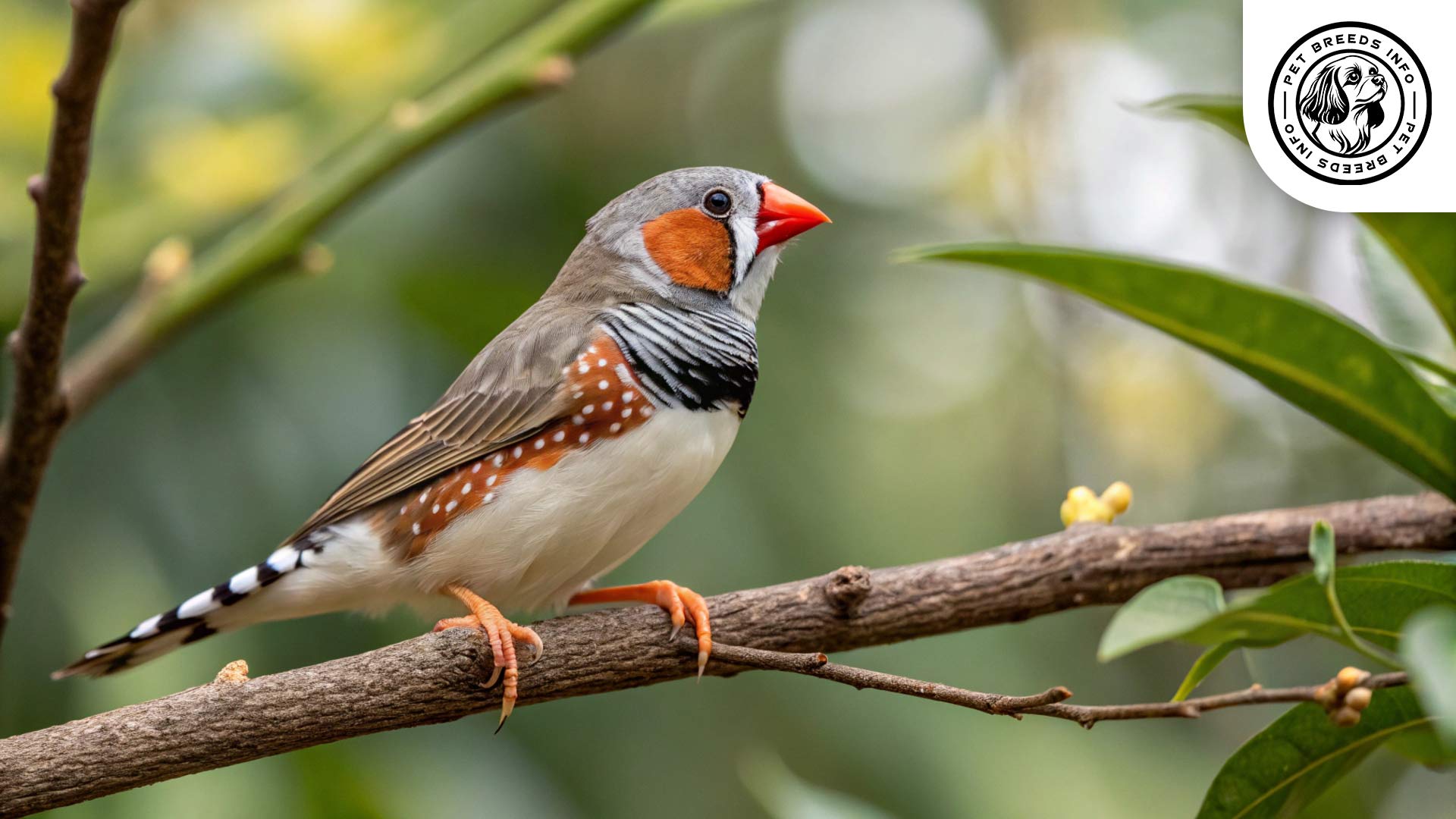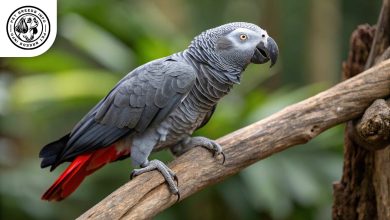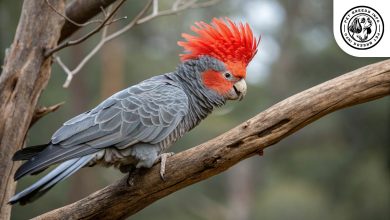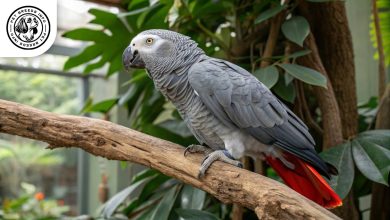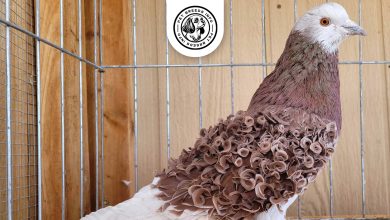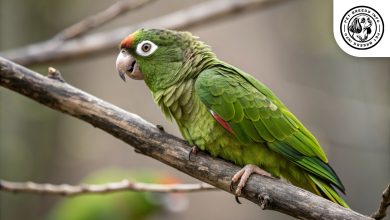Zebra Finch Bird: Personality, Lifespan, Food & Care
General Introduction of the Breed
The Zebra Finch (Taeniopygia guttata) is a small and lively bird belonging to the finch family. It is also known simply as the “Zebra Bird” due to its distinctive striped markings.
Originally from Australia, Zebra Finches are found in diverse habitats, including grasslands and open forests. These birds have been kept as pets for centuries and are now widely bred worldwide for their cheerful nature and ease of care.
Table of Contents
| Common Name: | Zebra Finch, Zebra Bird |
| Scientific Name: | Taeniopygia guttata |
| Origin: | Australia |
| Size: | 10-12 cm (4-5 inches) in length, 10-15 grams in weight |
| Lifespan: | 5-10 years (can be longer with excellent care) |
| Talking Ability: | Not trainable to talk like parrots; communicate through chirps and songs. |
| Colors: | Males: Bright orange cheeks, black and white throat stripes, reddish beak. Females: Subdued brownish-gray, orange beak. Variations include white, black-cheeked, and pied. |
| Noise Level: | Medium; frequent chirping and singing, generally pleasant sounds rather than loud squawks. |
| Social Behavior: | Social creatures; thrive when housed in pairs or groups. Get along well with other finches and small birds. |
Physical Characteristics
Zebra Finches are small birds, measuring about 10-12 cm (4-5 inches) in length and weighing between 10-15 grams. Males and females have noticeable color differences.
Males typically have bright orange cheeks, black and white stripes on their throats, and a reddish beak. Females, on the other hand, have a more subdued brownish-gray coloration and an orange beak.
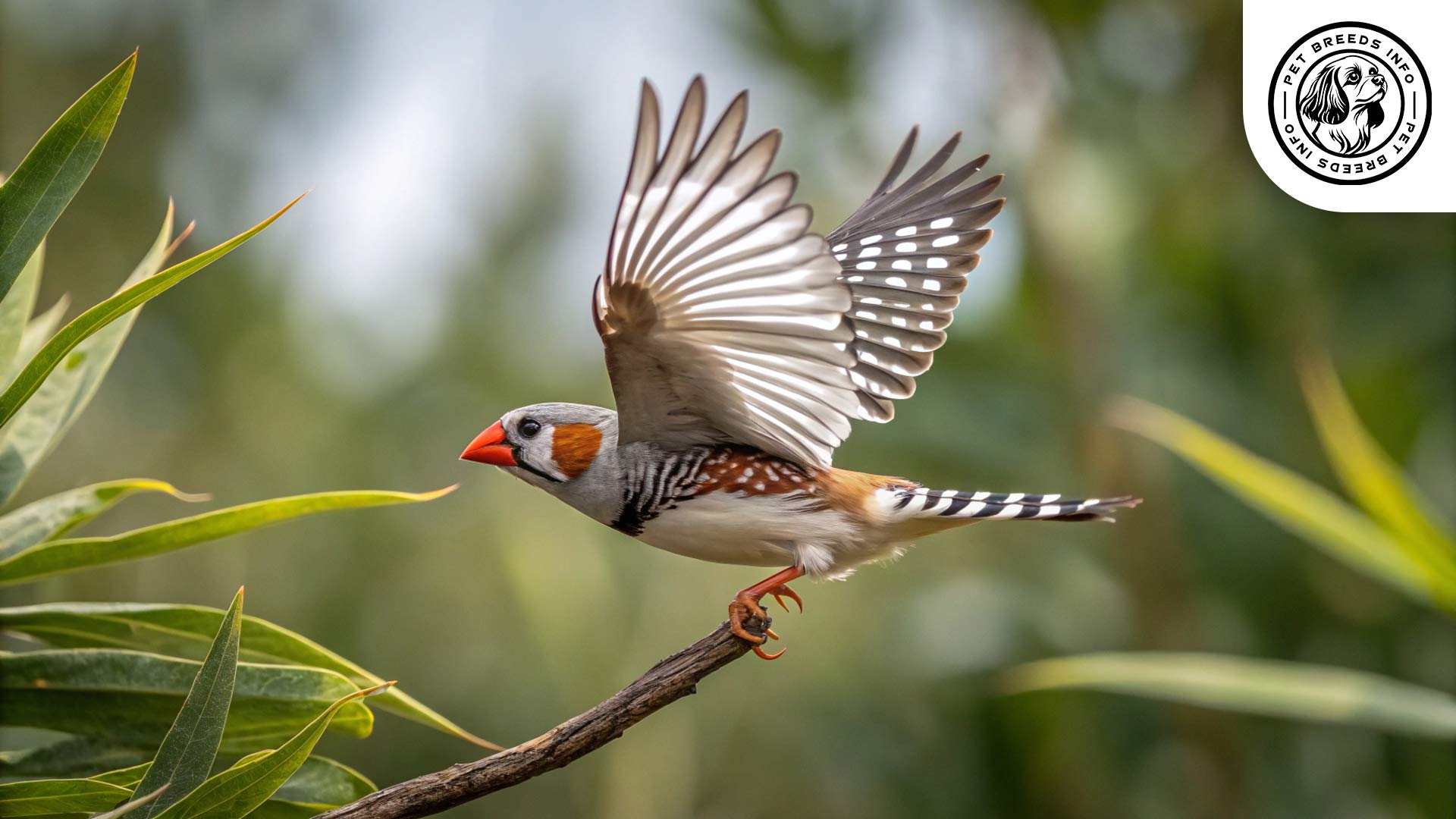
Their plumage varies slightly depending on mutations, with some variations including white, black-cheeked, and pied types.
Zebra Finches have dark, round eyes, small pointed beaks, and short tails. Their legs are usually orange with small claws for perching.
Read More: Zebra Dove Bird
Personality and Temperament
Zebra Finches are social, active, and relatively easy to care for, making them excellent pets for both beginners and experienced bird owners.
Their intelligence makes them quick learners, adapting easily to new environments. While they are not as trainable as parrots, they are highly observant and responsive to their surroundings.
These birds have medium energy levels and require space to fly. Since they are social creatures, they thrive when housed in pairs or groups.
Zebra Finches are not particularly affectionate with humans but enjoy being around their kind. They chirp and sing frequently, making pleasant sounds rather than loud squawks.
They are playful and love exploring, but they are not suited for handling like some other pet birds. They may become stressed by excessive human interaction, so gentle care is necessary.
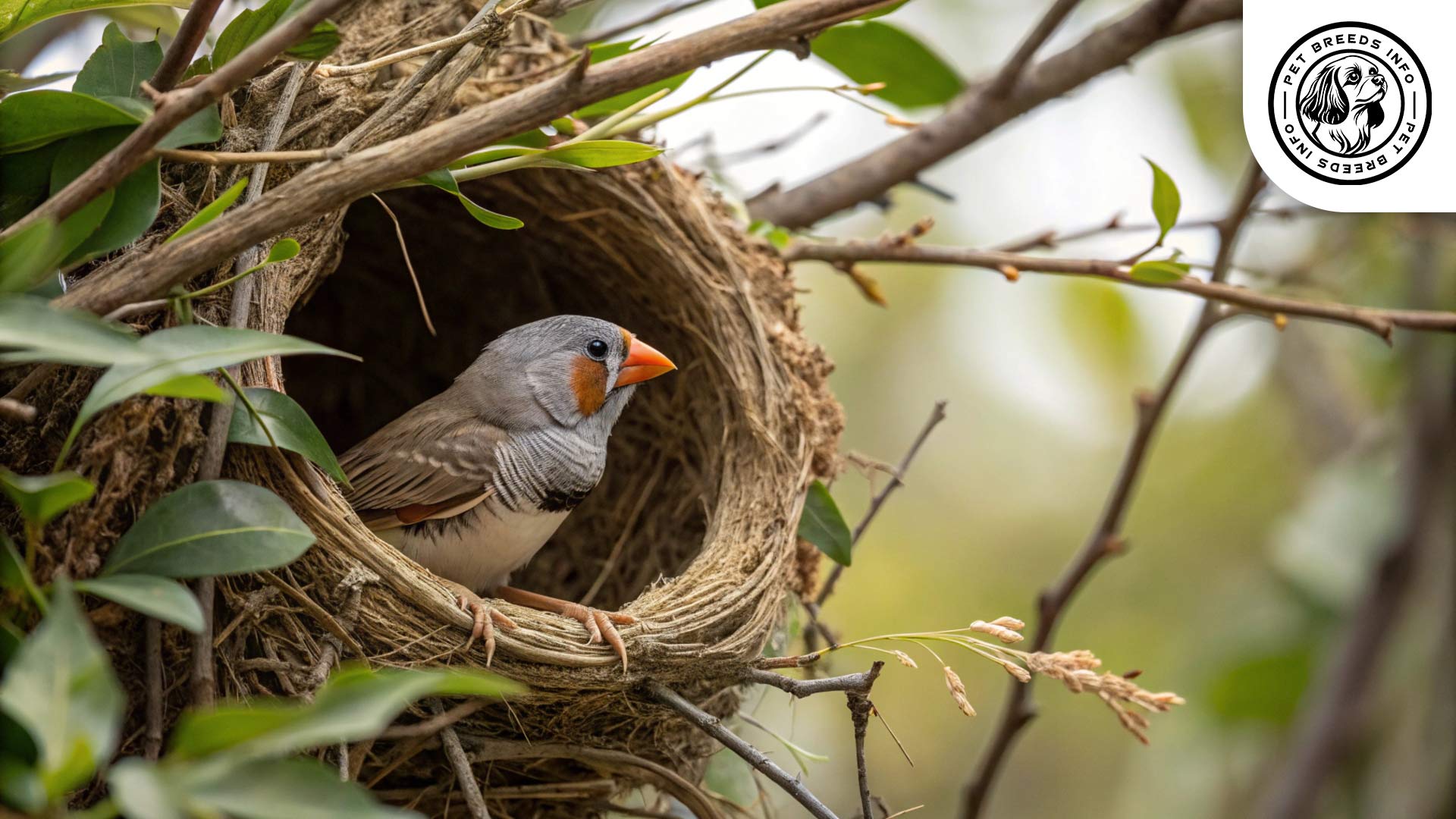
Care and Maintenance Requirements
Zebra Finches require daily exercise, preferably in a spacious cage or aviary with room for flight.
They can adapt well to apartment life as long as their cage is large enough and placed in a quiet yet well-lit environment.
These birds do not require extensive grooming. They are generally low-maintenance, but they enjoy occasional baths to keep their feathers clean. Providing a shallow dish of water will allow them to bathe themselves.
Zebra Finches are sensitive to extreme temperatures. They should be kept in a stable, warm environment, away from direct drafts or intense heat.
Proper hygiene includes regular cage cleaning, fresh food and water replenishment, and monitoring for signs of illness.
Read More: Button Quail
Diet and Nutrition
Zebra Finches thrive on a balanced diet of high-quality finch seed mix, supplemented with fresh fruits and vegetables.
They also benefit from egg food or protein sources, especially during breeding seasons.
Foods to avoid include chocolate, avocado, onions, and salty or processed human foods, as they can be toxic to birds.
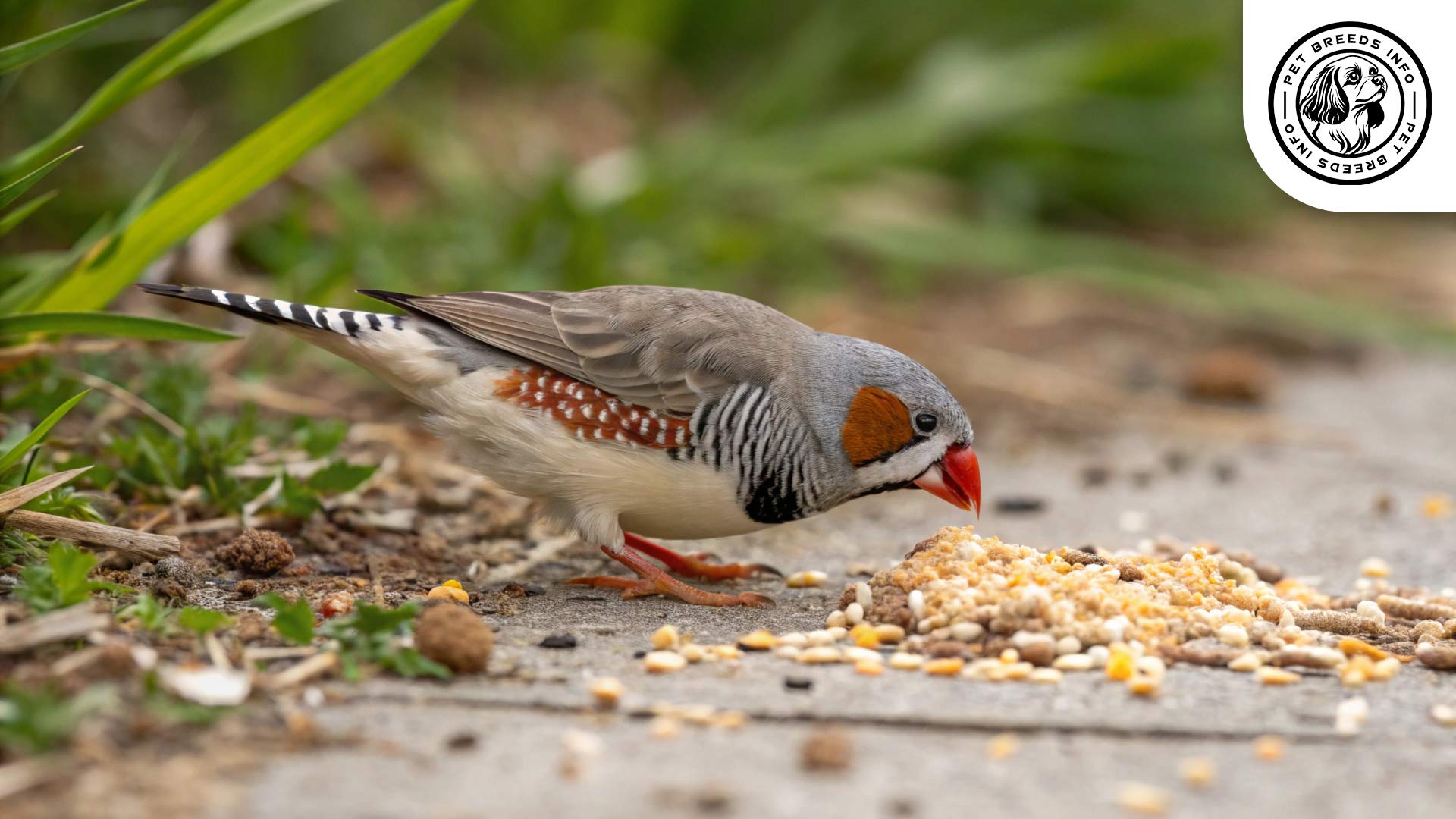
Ensure they have access to clean water at all times, and offer cuttlebone or mineral blocks to maintain beak and bone health.
Health and Common Medical Issues
Zebra Finches are generally hardy but can be prone to respiratory infections, mites, and nutritional deficiencies if not properly cared for.
Common health concerns include air sac mites, feather disorders, and egg-binding in females.
Proper hygiene, a nutritious diet, and regular veterinary check-ups can prevent most health problems.
The average lifespan of a Zebra Finch is 5-10 years, though some may live longer with excellent care.
Recommended veterinary care includes annual health checks and prompt attention if any signs of lethargy, weight loss, or breathing difficulties appear.
Training and Behavior Management
Zebra Finches are not trainable in the same way as parrots but can learn to recognize their owners’ presence.
They respond best to gentle handling and consistent feeding routines.
Early socialization with other finches helps develop a stable and stress-free temperament.
While they do not require traditional discipline, maintaining a quiet and stable environment will prevent unnecessary stress.
Interaction with Other Animals and Humans
Zebra Finches are great for families but are not pets that require hands-on interaction.
They get along well with other finches and small birds but should not be housed with larger, more aggressive species.
They are better suited for bird enthusiasts who enjoy observing rather than handling birds.
While they do not form strong attachments to humans, they recognize their caretakers and respond positively to routine care.
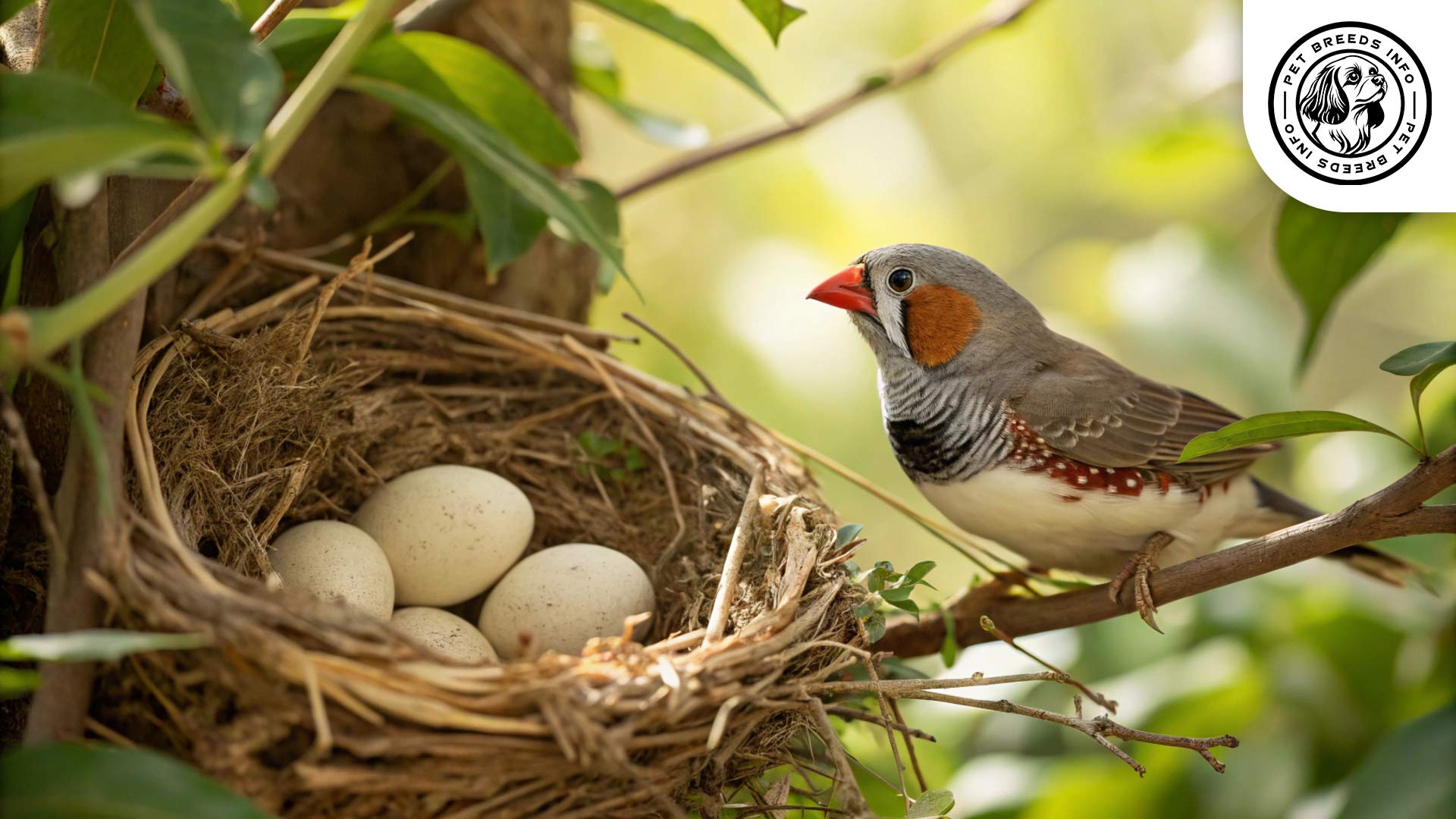
Price and Availability
Zebra Finches are widely available and relatively inexpensive. The average cost ranges from $10 to $50 per bird, depending on color mutations.
Potential buyers should prioritize reputable breeders or adoption centers to ensure they acquire healthy and ethically-raised birds.
Good breeders will provide information on the bird’s diet, health history, and any necessary care instructions.
Read More: Barbary Dove
Conclusion and Final Thoughts
Zebra Finches are an excellent choice for bird lovers who prefer low-maintenance pets with lively personalities.
Ideal for owners with a quiet and spacious environment, they thrive best in pairs or small groups.
Potential owners should consider their active nature, social needs, and sensitivity to temperature changes before committing to care for them.
Providing proper food, space, and veterinary care ensures a long and healthy life for these beautiful finches.
FAQ
Are Zebra Finches good pets for beginners?
Yes, they are relatively easy to care for, making them excellent pets for both beginners and experienced bird owners.
Do Zebra Finches like to be handled?
No, they are not suited for handling like some other pet birds and may become stressed by excessive human interaction.
How much space do Zebra Finches need?
They require a spacious cage or aviary with room for flight as they are active birds.
What do Zebra Finches eat?
They thrive on a balanced diet of high-quality finch seed mix, supplemented with fresh fruits and vegetables.
How long do Zebra Finches typically live?
The average lifespan is 5-10 years, though some may live longer with excellent care.
